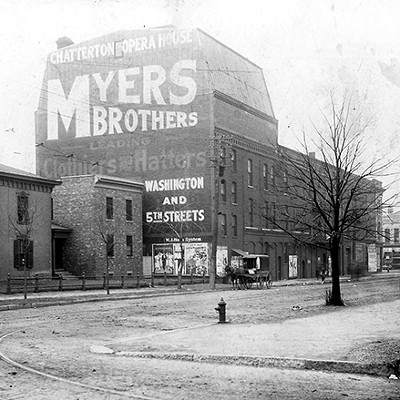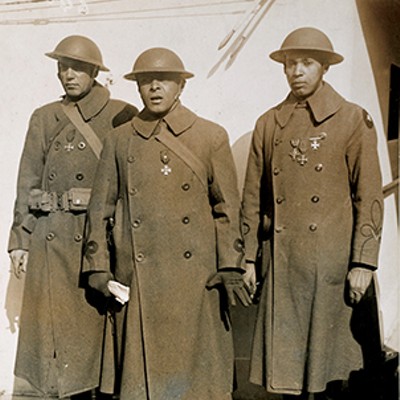
Social relations between red and white in America would get a little more complicated. Euro-Americans and native peoples shared mid-Illinois for more than 150 years, from the first contact by Jolliet and Marquette in 1673 to the 1830s, when the last of the Potowatomi dragged themselves to the other side of the Mississippi from their villages along the Vermilion River. A crucial part of this era is brought to life in a fine new book, Illinois in the War of 1812 by Gillum Ferguson. The author, a retired Naperville attorney, is one of those gentlemen scholars to whom Illinois history owes so much. His book is anything but an amateur history of the sort I perhaps damned too emphatically in my recent column, “Clio in the cornfields.” It has been justly praised; the Illinois State Historical Society gave it an Award of Superior Achievement this year, and before that the Society picked it as its 2012 Russell P. Strange Book of the Year Award.
In the War of 1812, the British allied with the Indians against the Americans. That alliance offered Illinois native peoples a brief hope, not of driving the white settlers out, but merely of getting them to abide by the terms of what could be called a two-state solution. The Indians in this part of the state were themselves interlopers. The Kickapoo and Potowatomi then resident in central Illinois had been pushed west and south into Illinois by stronger peoples. They occupied lands only recently vacated by the people of old Illini Confederacy, of whom there was by then only a handful left, the rest having died at the hands of red men’s weapons or white men’s diseases.
The whites in Illinois had been pushed west and north (in their case from the Carolinas, Tennessee and Kentucky) by more powerful tribes – the bishops, the landlords, the kings, the magistrates, the lawmakers, just as their parents had been pushed west from Britain. “The tribes that fought for the British were relatively new arrivals who, as they forced their way in from the north, collided with Americans moving in from the south and southeast,” said Ferguson in an interview with Smiling Politely, Champaign-Urbana’s online magazine. “Conflict between the Americans and the Indians was probably inevitable, but it was because they both coveted the same relatively empty territory.”
The local politics of the war were complex, as some of various Indian bands fought with the British, some remained neutral, and the French Canadian trading community was regarded by many Americans as Indian and as American by the Brits. The fighting was complex too. Nothing deserved the name “battle” – there were too few people in Illinois at the time to have more than a gang fight. The conflict took the form of small-unit actions – skirmishes, raids, massacres, such as the wanton destruction of Indian villages around Peoria. The white militias did not scruple to use what are now properly labeled terrorist tactics, including the destruction of winter food stocks that doomed Indian women and children to semi-starvation. The torture to which each side resorted – rather more practiced by the Indians, it having its own niceties borne of long practice – is stomach-turning
Ferguson functions here as a true scholar, fastidious about the facts and circumspect about their meaning. Readers who want authors to label heroes and villains and draw easy morals will be disappointed. So good a book this is that it is all the more disappointing when Ferguson sounds a sour triumphalist note in his coda. What he has called the “passing political fashions” of our day have long unfairly condemned the whites as soldiers in a war of racial imperialism. He believes that verdict to be unfair. “Where the hard-handed men and women of 1812 had destroyed, they also planted and built. It is all too easy two hundred years later, for those who enjoy the wealth and security of the state they made, to condemn them for doing what they had to do to make it.”
This is, to borrow a phrase that is popular at the moment among media cognoscenti, a false equivalence. Ferguson’s own account makes clear that the native peoples then in possession (not ownership) of Illinois at first understood the white presence as they understood their own. Land was meaningful only as a means of sustenance, and there was plenty of Illinois to go around. Only when the whites made clear that they wanted it all, that they treated dishonestly, that they would side with any white against any Indian regardless of circumstance, did Indian resistance mount.
This justifying the means by the ends is persuasive only to the extent that one regards the victor’s culture or race as superior. This ancient argument was given new expression in our time in the partition of the Indian subcontinent, in the former Yugoslavia, in Iraq. The expulsion of the Indians from Illinois was ethnic cleansing at its least apologetic.
Contact James Krohe Jr. at [email protected].





















